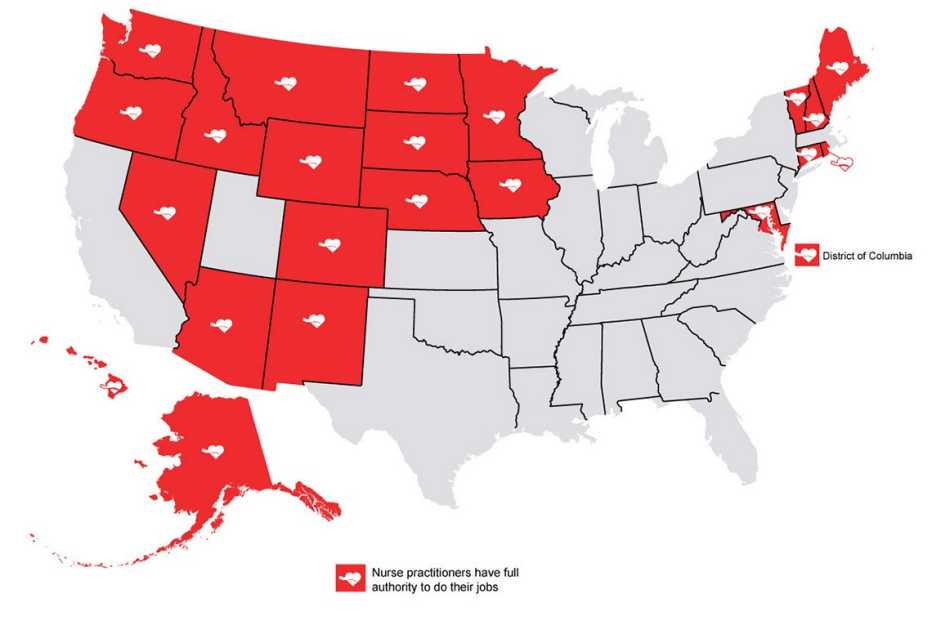Staying Fit
Nurses do remarkable things for the people they serve. For many family caregivers, nurses are lifesavers, providing care for their older loved ones at home — often after a hospitalization or while treating a serious medical condition. They are one of the reasons many older Americans are able to continue to live at home, where they want to be — and not in costly institutions such as nursing homes.


Advanced practice registered nurses (APRNs) — commonly referred to as nurse practitioners — do not always have the authority to practice to the full extent of their education and training. For example, while many nurses see older patients every week in their home, they are not allowed to update prescriptions, which instead requires the patient to travel to a medical office for a simple medication adjustment.


AARP Membership— $12 for your first year when you sign up for Automatic Renewal
Get instant access to members-only products and hundreds of discounts, a free second membership, and a subscription to AARP the Magazine.
Nurses are seeking more authority to help patients by using all of their health care knowledge and training. It only makes sense, as health care needs grow, to allow nurses to use all of their skills.
Rules that limit a nurse’s authority to heal make little sense when we have a shortage of health care workers. That’s why AARP is advocating for law changes in two ways:
- Increased scope of practice: Nurse practitioners have completed additional education and training at the master’s or doctoral level. This means they’re qualified to diagnose and treat patients, order and evaluate diagnostic tests, prescribe medications and more. They should be able to practice to the full extent of their training.
- Nurse delegation: This allows nurses to delegate certain tasks and transfer authority to trained home care professionals in regular direct contact with patients. Now, the medical tasks fall to the family caregiver to perform.
These changes could mean:
- Less travel to medical offices for a family caregiver to organize, instead allowing a nurse practitioner to prescribe certain prescriptions at a patient’s home.
- Removal of outdated barriers that prohibit nurse practitioners from providing care to their patients to the full extent of their education and training.
- Additional opportunities for patients to get routine health care in a variety of settings close to home, like medical offices, community health centers, in the workplace and at home.
- Medical or nursing tasks may be delegated to a trained home-care worker instead of falling on the family caregiver.
As part of our caregiving campaign, AARP has been working across the states to give nurses more authority to heal, and already, progress has been made.Right now, in Massachusetts and Pennsylvania, state legislatures are considering bills to give nurses full authority to heal.
Where Does Your State Stand?
If you are a family caregiver, you’re not alone.
- To stay up to date or to get involved with AARP’s caregiving advocacy in the states, sign up for the AARP Advocates e-newsletter or visit your state Web page.
- To find the tools and resources you need visit the AARP Caregiver Resource Center.
- To share your story and connect with others visit aarp.org/iheartcaregivers.


































































More From AARP
11 Ways to Fight Election Disinformation
The 2024 election is on the horizon. How can you tell if photos, videos and stories are real?Social Security Trustees Project Shortfall by 2034
Forecast moves up date when benefits could be cut